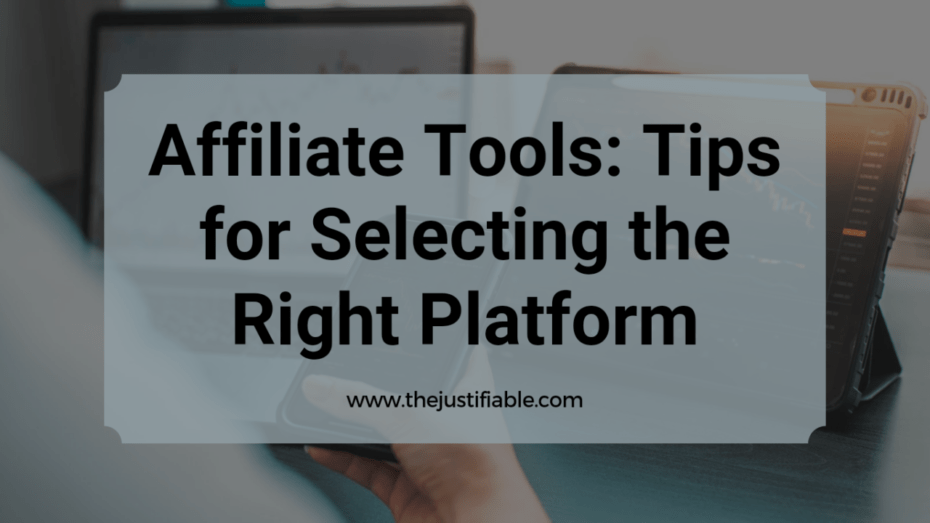Are you wondering how to get started in affiliate marketing? Do you feel overwhelmed by the vast amount of information available? Getting started in affiliate marketing can seem daunting, but it doesn’t have to be.
From my perspective, the key is to begin with a clear understanding of the basics and a solid strategy. In this guide, I’ll walk you through the essential steps to launch your affiliate marketing journey effectively.
We’ll explore what affiliate marketing is, how it works, and why it has become a popular method for generating income online. My intention is to provide you with practical advice and insights that will not only introduce you to this exciting field but also set you up for long-term success.
Table of Contents
Understanding the Basics of Affiliate Marketing
Affiliate marketing is a performance-based marketing strategy that can be a game-changer for those looking to enhance their digital presence and earn revenue. In my opinion, understanding its fundamentals is crucial before diving in.
Essentially, it involves promoting products or services offered by others and earning a commission from sales or leads you generate. I strongly believe that grasping this concept is the first step towards a lucrative affiliate marketing career.
From my perspective, anyone can succeed in affiliate marketing with the right approach. It’s about connecting the right audience with the right products. My advice is to start by identifying your niche and understanding your audience’s needs. This alignment between product offerings and audience requirements is fundamental to driving meaningful engagements and conversions.
Most importantly, getting started in affiliate marketing doesn’t require substantial upfront investment, which makes it appealing for beginners. My recommendation is to focus on building a strong foundation of trust with your audience, which in turn will make your affiliate efforts more successful and sustainable. Here’s how you can start: select a few reputable affiliate programs that align with your content and audience interests.
Affiliate Programs Recommendations
FlexOffers
| MyLead
| ShareASale
|
What Is Affiliate Marketing? An Overview
Affiliate marketing is a dynamic and versatile marketing technique that enables individuals and companies to partner with businesses to promote their products or services. According to industry insights, affiliate marketing has grown exponentially due to its performance-based nature, which ensures mutual benefits for both affiliates and merchants. I am of the view that understanding this mutual benefit is key to recognizing why affiliate marketing is so effective.
Speaking personally, I believe that the beauty of affiliate marketing lies in its simplicity and accessibility. You promote a product, someone purchases it through your link, and you earn a commission. It’s that straightforward. However, the depth of strategies involved in executing successful campaigns is what separates successful affiliates from the rest.
My impression is that anyone looking to enter the digital marketing space should consider affiliate marketing as a viable option. It offers flexibility, scalability, and a potential for significant income without the need for logistics management. I suggest starting with a clear strategy and measurable objectives to maximize your outcomes.
Key Components of a Successful Affiliate Strategy
From my experience, a successful affiliate strategy hinges on several key components. First and foremost, choosing the right affiliate products to promote is critical. I recommend selecting products that you are genuinely interested in and that you believe will bring value to your audience. This alignment increases the likelihood of conversions and enhances your credibility.
Secondly, effective marketing tactics are essential. In my opinion, leveraging both SEO and content marketing to drive traffic to your affiliate links is a powerful approach. Creating valuable, relevant content that addresses your audience’s needs can lead to higher engagement rates and more successful conversions.
Moreover, I would say that ongoing monitoring and optimization of your affiliate campaigns are crucial for long-term success. Analyzing performance data allows you to understand what works and what doesn’t, enabling you to make informed decisions to improve your strategies. My advice is to stay adaptable and continuously seek new ways to optimize your affiliate efforts.
Lastly, I cannot stress enough the importance of maintaining transparency with your audience. According to recent consumer trust surveys, transparency significantly impacts consumer loyalty and trust. I strongly believe that being honest about your affiliate relationships helps build trust and enhances your reputation as a reliable and ethical marketer.
Choosing the Right Affiliate Programs and Products
Selecting the right affiliate programs and products is a critical step for anyone getting started in affiliate marketing. In my opinion, the key is to find programs that align with your interests and audience.
I recommend doing thorough research on various programs to ensure they offer quality products and fair commissions. From my perspective, choosing the right affiliate programs can make a significant difference in your marketing success.
It’s important to consider the relevance of the products to your niche. I believe that promoting products that resonate with your audience is crucial for fostering trust and driving sales. Additionally, understanding the commission structure and the affiliate program’s terms and conditions is vital. This ensures you’re aligning with programs that align with your business goals.
Most importantly, selecting the right products involves focusing on quality and demand. I strongly believe that promoting high-quality products that fulfill a need or solve a problem for your audience is key to building credibility and trust.
I suggest regularly evaluating the performance of the products you promote to ensure they meet your expectations and align with your audience’s preferences.
Criteria for Selecting Affiliate Programs
When it comes to selecting affiliate programs, there are several criteria to consider. In my opinion, one of the most important factors is the program’s reputation. Working with reputable programs that have a track record of paying affiliates fairly and on time is crucial. According to industry experts, programs with transparent and reliable payment structures are generally more trustworthy.
I would say that product relevance is another critical criterion. The products or services offered by the affiliate program should align with your niche and audience’s interests. This alignment increases the likelihood of successful conversions. I recommend reviewing the program’s product offerings and assessing their suitability for your audience.
My suggestion is to also look at the program’s commission rates and payment terms. Programs that offer competitive commissions and flexible payment options can significantly impact your earnings. I hold the opinion that understanding the program’s cookie duration is important too, as longer cookie durations can increase your chances of earning a commission.
Top Affiliate Networks to Consider
There are numerous affiliate networks available, but some stand out for their reliability and range of offerings. I recommend considering networks like Awin, ShareASale, and FlexOffers, as they offer a wide variety of products and services across different niches. From my perspective, these networks are user-friendly and provide valuable resources for affiliates.
Speaking personally, I believe that Awin is a great starting point for beginners due to its simplicity and extensive product catalog. However, ShareASale offers a diverse range of merchants and has a strong reputation for supporting affiliates. CJ Affiliate, on the other hand, provides a robust platform with advanced tracking and reporting features.
I suggest evaluating these networks based on your niche and audience. Most importantly, each network has its unique strengths, so it’s beneficial to choose one that aligns with your goals. In my experience, working with a reputable network that provides excellent support and resources can enhance your affiliate marketing journey significantly.
Setting Up Your Affiliate Marketing Platform
Establishing a solid digital infrastructure is fundamental for anyone getting started in affiliate marketing. From my point of view, the right setup not only streamlines your operations but also enhances your ability to engage with your audience effectively. It’s essential to select the right tools and technology that support the scalability and management of your affiliate activities.
Most importantly, a reliable hosting service and a flexible content management system (CMS) are the backbones of a good affiliate marketing platform. I strongly believe that these elements ensure your site remains operational and user-friendly, which are crucial for maintaining visitor engagement. My advice is to opt for a CMS like WordPress, which is not only robust but also offers numerous plugins specifically designed for affiliate marketing.
Lastly, integrating analytics tools is key to tracking your success. Tools like Google Analytics provide insights into traffic sources, visitor behavior, and conversion rates. From my perspective, these metrics are invaluable for optimizing your marketing strategies and improving overall performance. I suggest setting up these tools right from the start to make data-driven decisions that enhance your affiliate efforts.
Essential Tools and Software for Affiliates
To effectively manage and grow your affiliate marketing efforts, utilizing the right tools and software is indispensable. According to leading industry experts, affiliate marketers should invest in quality SEO tools like SEMrush or AIOSEO.
These tools help in researching keywords, analyzing competitors, and tracking your site’s performance in search rankings. I believe that SEO is a critical component of affiliate marketing, as it drives organic traffic to your site.
Email marketing software is another crucial tool. Platforms such as Aweber or Omnisend allow you to build and manage email lists, create targeted campaigns, and automate communications with your audience. I am of the view that personalized communication significantly increases engagement and conversion rates.
Furthermore, I would say that social media management tools like Hootsuite or Sproutsocial are essential for scheduling posts and managing interactions across multiple channels. These tools save time and enhance your online presence. My recommendation is to integrate these tools into your daily operations to maintain consistent engagement with your audience.
Building Your First Affiliate Website
Building your first affiliate website involves several key steps that need to be executed carefully. My suggestion is to start by choosing a domain name that is relevant and memorable. This forms the foundation of your brand’s online presence. I recommend using domain registration platforms like Name.com or Namecheap, which are user-friendly and reliable.
The next step is to select a hosting service. Services like Hostgator or Hostinger are popular among affiliate marketers due to their performance and support. I strongly believe that a fast and reliable website enhances user experience and SEO, crucial factors in affiliate marketing.
Once the domain and hosting are set, installing a CMS like WordPress will allow you to design and manage your site with greater ease. WordPress is highly recommended because of its versatility and the extensive range of themes and plugins specifically geared towards marketing.
Finally, customizing your website to suit your niche and audience is critical. Incorporate clear navigation, responsive design, and optimized content that promotes your affiliate products effectively.
From my perspective, your website should not only be aesthetically pleasing but also functional, providing users with valuable information and a seamless shopping experience. I am of the mind that well-structured content and an appealing design are paramount in converting visitors into customers.
Strategies to Drive Traffic and Boost Affiliate Sales
Driving traffic and boosting sales are crucial for the success of any affiliate marketing venture. From my experience, the combination of strategic SEO and effective social media marketing can substantially increase your site’s visibility and conversions.
I recommend starting with a clear understanding of your target audience, as this will guide all your marketing efforts and help tailor your strategies to the audience’s preferences and behaviors.
In my opinion, a multi-channel approach is essential. Integrating content marketing, email marketing, and pay-per-click (PPC) advertising alongside SEO and social media can provide a comprehensive reach and engage potential customers at various stages of the buyer’s journey. My advice is to use analytics tools to monitor which channels drive the most traffic and focus on optimizing those strategies.
Most importantly, conversion optimization should not be overlooked. Simple adjustments like improving website load times, optimizing landing pages, and clear call-to-action (CTA) buttons can significantly enhance user experience and increase sales. I strongly believe that a focus on both attracting visitors and converting them into customers is key to growing your affiliate marketing business.
SEO Techniques for Affiliate Marketers
Effective SEO is pivotal for any affiliate marketer looking to attract targeted traffic. From my point of view, keyword research is the foundation of a successful SEO strategy. Using tools like Squirrly or Ahrefs, identify relevant keywords that potential customers are searching for and incorporate them naturally into your content. I recommend focusing on long-tail keywords, which are less competitive and more conversion-oriented.
On-page optimization is another critical aspect. I believe that optimizing your title tags, meta descriptions, and headers with targeted keywords helps improve your site’s visibility and search engine ranking.
Moreover, creating high-quality, engaging content that addresses your audience’s needs can lead to better engagement and higher search engine rankings. According to recent SEO trends, content quality and relevance significantly impact your SEO success.
Link building is also vital. I would say that acquiring backlinks from reputable sites within your niche can dramatically improve your site’s authority and search rankings. My suggestion is to engage in guest blogging, collaborate with influencers, and participate in industry forums to build links naturally and ethically. Remember, quality over quantity should be your mantra when it comes to building links.
Leveraging Social Media for Affiliate Promotion
Social media platforms offer a dynamic environment for promoting affiliate products effectively. I recommend starting with platforms where your target audience is most active. For instance, if your niche is fashion, platforms like Instagram and Pinterest might be more beneficial than LinkedIn. It’s important to tailor your content to each platform’s unique style and audience.
Engagement is key on social media. I think that regularly interacting with your followers through comments, live videos, and personal stories can build trust and loyalty. Offering exclusive deals and promotions on social media can also drive interest and sales. My advice is to use scheduling tools to maintain consistent activity and engagement on your profiles.
Paid social media advertising can also be a powerful tool. I suggest using targeted ads to reach a broader audience. Platforms like Facebook and Instagram offer sophisticated targeting options that allow you to reach potential customers based on their interests, behaviors, and more.
From my perspective, combining organic and paid strategies provides a balanced approach to social media marketing, maximizing both reach and engagement.
Lastly, monitoring and analyzing the performance of your social media activities is essential. Tools like Google Analytics and native analytics from social media platforms can provide insights into what strategies are working and what needs improvement.
I am of the view that continuous testing and adjusting your strategies based on data-driven insights can optimize your social media efforts and enhance your affiliate marketing success.
Monitoring and Optimizing Your Affiliate Efforts
Monitoring and optimizing your affiliate efforts are crucial to maximizing your potential earnings and sustaining long-term success. In my opinion, regular performance reviews allow you to understand what strategies are working and what adjustments are needed.
My recommendation is to utilize detailed analytics tools provided by affiliate networks and third-party platforms to gather data on your campaigns.
It is essential to benchmark your performance against your goals. I believe setting clear, measurable objectives for each campaign enables you to track progress effectively and make informed decisions. My advice is to continuously experiment with different strategies, including testing various marketing messages, platforms, and audience segments to identify the most effective approaches.
Most importantly, staying updated with industry trends and best practices is vital. I strongly believe that the affiliate marketing landscape is always evolving, so maintaining your knowledge base will help you adapt and thrive. I recommend attending webinars, subscribing to relevant blogs, and networking with other affiliate marketers to stay ahead of the curve.
Key Metrics to Track as an Affiliate Marketer
Understanding which metrics to monitor is crucial for any affiliate marketer looking to optimize their campaigns. Firstly, click-through rates (CTR) are a primary indicator of how compelling your affiliate links and advertisements are.
High CTRs suggest that your messages resonate well with your audience. I think monitoring conversion rates is equally important, as this measures the percentage of clicks that result in a sale or desired action.
Secondly, average order value (AOV) should be tracked to understand the spending habits of your referrals. Higher AOVs can significantly impact your overall earnings, making it a valuable metric for strategic adjustments. According to industry experts, tracking the earnings per click (EPC) provides insight into the profitability of each click, helping you evaluate the effectiveness of your affiliate products.
I also recommend monitoring the return on investment (ROI) from your marketing efforts. This metric helps assess whether the costs of your marketing strategies are justified by the revenues they generate. My advice is to use these metrics to guide your tactical decisions and refine your marketing approach for better outcomes.
Tips for Optimizing Affiliate Campaigns
To optimize your affiliate campaigns, I suggest focusing on enhancing the relevance and placement of your affiliate links. Placing links within high-quality, engaging content rather than standalone advertisements can increase trust and conversion rates. I recommend using A/B testing to experiment with different link placements and styles to see what yields the best results.
Furthermore, optimizing for mobile is essential, as a significant portion of online traffic comes from mobile devices. Ensuring that your affiliate content is mobile-friendly can greatly improve user experience and conversion rates. From my perspective, adopting responsive web design and checking page load speeds on mobile devices are crucial steps.
Additionally, personalizing your marketing messages can lead to better engagement and conversions. I believe using data-driven insights to tailor your content and offers to the needs and preferences of your target audience can significantly enhance the effectiveness of your campaigns. Tools like CRM software can help segment your audience and deliver more personalized marketing communications.
Lastly, leveraging retargeting strategies can increase conversions by reminding potential customers of the products they viewed but did not purchase. From my experience, retargeting ads are highly effective because they keep your affiliate products top-of-mind and encourage return visits.
My impression is that combining these optimization tactics with continuous learning and adaptation is the key to achieving and surpassing your affiliate marketing goals.
Conclusion: Kickstarting Your Affiliate Marketing Success
As we’ve explored the ins and outs of getting started in affiliate marketing, I hope you feel prepared to take your first steps into this exciting field. We’ve covered everything from the basics of affiliate marketing, selecting the right programs, setting up your marketing platform, to driving traffic and optimizing your strategies. Each of these areas plays a crucial role in your success as an affiliate marketer.
I strongly believe that by following the guidance provided, you can establish a solid foundation for your affiliate marketing endeavors. Remember, the key to success lies in understanding your audience, choosing products that resonate with their needs, and continuously optimizing your efforts based on performance data. My recommendation is to start small and scale up as you gain more insights and confidence.
Most importantly, I encourage you to take action today. The world of affiliate marketing offers vast opportunities for growth and profitability. With dedication and perseverance, you can achieve significant success. I’m of the mind that with the strategies discussed, coupled with your unique insights and creativity, you’re well-equipped to launch your affiliate marketing journey.
So why wait? Begin by selecting your first affiliate program, setting up your platform, and crafting content that converts. Remember, every successful marketer started somewhere, and today could be your beginning.









